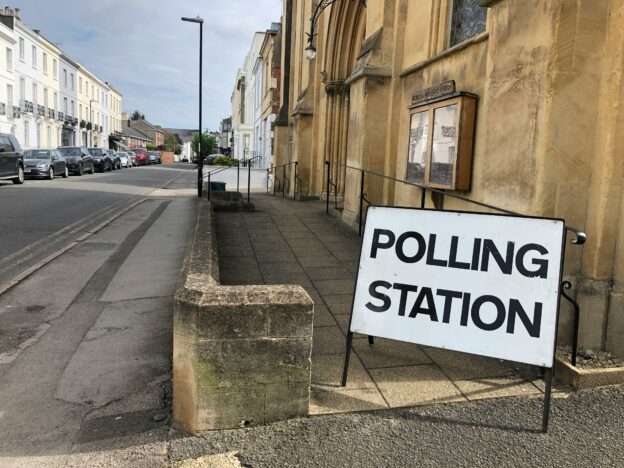The main takeaway from May 2025’s local elections is that Reform UK is now firmly placed among the top players in Westminster. Despite only recently professionalising and mobilising, the party has turned a sea of established Conservative councils a bright turquoise blue. The Conservatives are now rapidly losing electoral support and Reform UK’s Leader Nigel Farage has declared his party the main opposition to the government.
Reform UK’s sharp rise has been evident since last year’s general election. Translating its position in the opinion polls into electoral success has, however, previously been inhibited by the UK’s first-past-the-post voting system. This saw the party win only five seats in last year’s general election despite receiving 14% of the national vote share. Reform UK has since showed no signs of slowing down, with opinion polls increasingly in their favour in the lead up to this month’s local elections. The party was undoubtedly the big winner of the contest, securing 677 council seats, demonstrating its credentials as a serious challenger to the two main parties.
The Conservatives have had the toughest result of all the parties, losing 674 seats overall. Of the 23 councils up for election, they had been in control of 16. Reform UK now control ten, the Liberal Democrats have the keys to three, and a further ten have no overall party control. This is likely to raise questions over Kemi Badenoch’s future as leader of the Conservative Party, although a formal challenge is unlikely to materialise given Conservative MPs’ appetite for stability after a recent series of damaging leadership changes. Conservative headquarters will now have to ensure its strategy is bulletproof if it hopes to fend off the threat of Reform UK and meaningfully challenge the incumbent Labour government at the next general election.
It was not a successful result for the government either, with Labour losing 187 seats. The Party’s only glimmer of hope can come from returning incumbent mayors in Doncaster, North Tyneside and West of England. While Labour had a smaller pool of seats to defend than the Conservatives, meaning its losses were less severe, keeping this trio of local authorities will be hard to celebrate considering Reform UK came a close second in all of them. With a brand new Reform UK MP overturning Labour’s majority of 14,696 in Runcorn and Helsby by a mere six votes, there is clearly serious dissatisfaction with the government’s direction of travel, undoubtedly causing a serious headache for No.10.
Two truths emerged from the first real test of the government: Labour must pull through on delivery for the public if it hopes to keep its position in power come the next general election, and the Conservatives need to figure out how to remain as the main opposition party with Reform UK continuing to gather momentum at pace.
Join us on Thursday 8 May at 9am for our Post Local Elections Webinar with former Treasury Minister Rt Hon David Laws and JL Partners Director Guy Miscampbell to discuss the local election results and what they mean for national politics.



